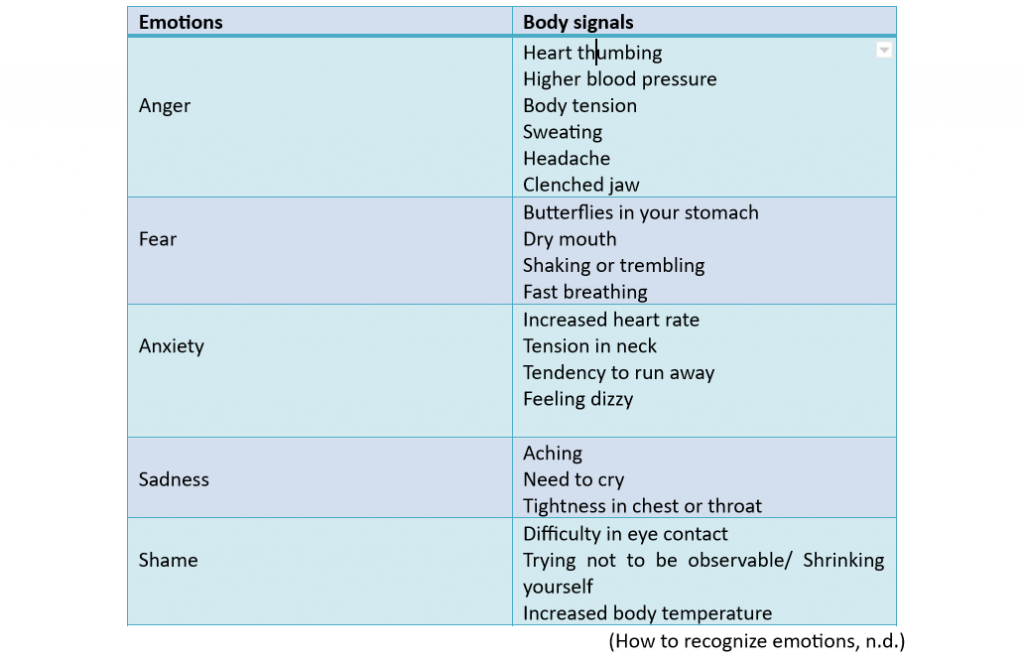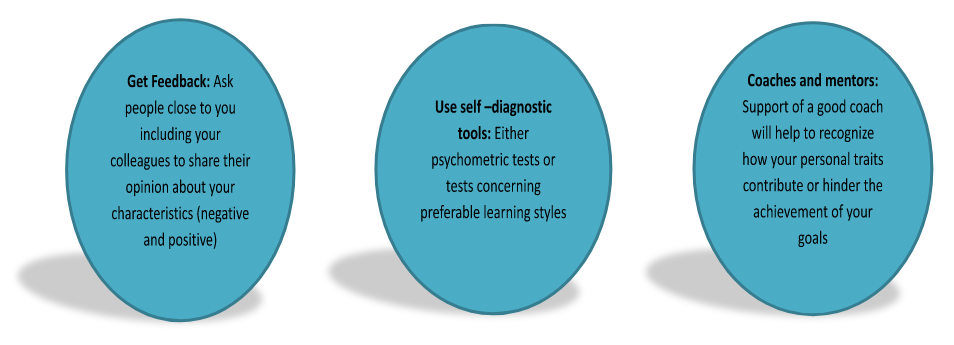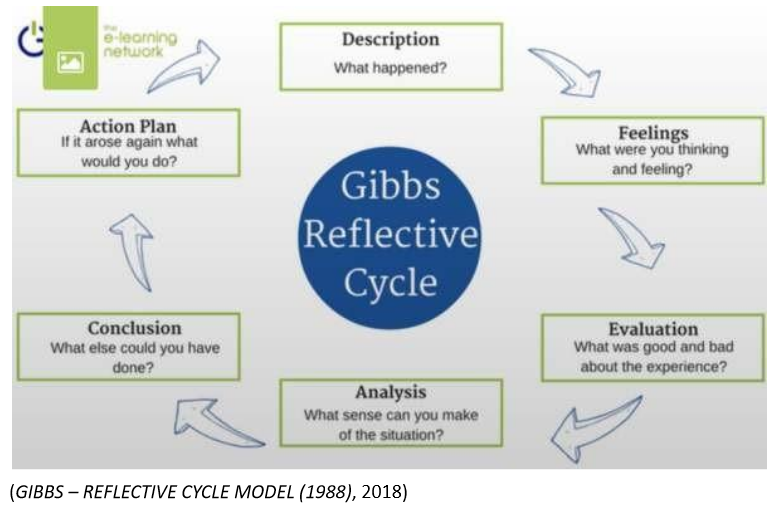Self – Awareness

Recognize emotions
Emotions are feelings and are not consciously controlled. The part of the brain, which is connected to emotions, is the limbic system (Recognizing and Managing Emotions, n.d.). Emotions are inseparable from previous experience and memory. Therefore, if someone had a traumatic experience before, then it is possible that his/her emotional response to a similar stimulus will be really strong.
Basic facts about emotions
- Emotions are not permanent. They come and go. Throughout the day we are going through several emotions. Some of them last for a moment and some others may lead to a change of mood.
- The intensity of emotions varies. They can be either mild or intense.
- There are no good and bad emotions. But there is a good and a bad way of expressing them (Understanding your emotions, n.d.).
The first clue to recognize the emotions
When it comes to recognizing an emotion, the first thing to pay attention to is body language. Body signals can reveal and help identify the specific emotion we are going through at a certain period of time. Each emotion triggers different body reactions, which vary in people and can be experienced in different ways.

How to recognize emotions
Emotional awareness helps us accept and understand ourselves better. Therefore, three simple steps are listed below, to help us recognize our emotions (Understanding your emotions, n.d.).
- Practice and make a habit of observing how you feel throughout some daily experiences. You probably feel relaxed after exercising or sad after hearing some bad news. Notice your emotions and name them.
- Evaluate a feeling’s intensity. It is significant to rate how intense the feeling was according to a 1 – 10 scale, where 1 is extremely mild and 10 totally intense.
- Share your feelings with people close to you. Thus, you practice in expressing your feelings, too, and it helps to strengthen your relationships.
Why recognizing emotions is important
(5 Reasons Why Recognizing Your Emotions Is Important, 2019)
- It helps understand the reason behind the emotion.
- It helps feel in control.
- Negative emotions empower negative thoughts.
- Recognizing our emotions means we can ask for help.
- It strengthens relationships.
Recognize your personal qualities and achievements
Personal qualities are traits that our personality and character consist of. Patience, flexibility, love of learning, consistency, perseverance, self – discipline, critical thinking, all are examples of personal qualities. Being able to recognize personal qualities and skills contributes not only to personal but also to professional development (Understanding your personal qualities, 2016).
How to recognize and assess my personal qualities
If you cannot identify your personal strengths and qualities, there is a variety of techniques and tools that help to do so (Understanding your personal qualities, 2016). Ideally, the first thing to do is to create a list and note what you believe about yourself. Additionally, you can find below further ways to help you:

Why it is important to recognize your personal qualities and achievements
- Self – esteem and confidence are enhanced.
- When applying for a job, personal qualities need to be noted and emphasized.
- It helps to get to grips with yourself and decide more confidently your future steps and choices both personally and professionally.
- Being able to recognize attitudes and personal qualities of others as well, leads to a better team building and thus to successful performances.
Express emotions appropriately
Although there has been progress regarding emotional education, phrases such as “men don’t cry” or “don’t be so angry, it is bad” still exist and form emotional expression (Moreno, 2019). Definitely family, culture, experiences, social roles and models determine and influence emotional expression.
Ways of emotional expression (Moreno, 2019)
When you feel like expressing an emotion that makes you feel uncomfortable, you can try following these simple steps:
1. Take some time on your own and take a deep breath.
Think of what you need at the moment and try to notice whether there are any body signals related to your feelings.
2. Recognize your emotion.
If you are not sure about what you are feeling, spend some time to think about your feelings and try to give your emotions a name (anger, sadness, etc.)
3. Be honest about your real feelings.
Emotional censorship will probably lead to a feeling of embarrassment or guilt. Accept and permit yourself to taste this certain feeling.
4. Εxpress it in a healthy way.
Writing down your emotions offers great emotional release and it also gives the chance to process your thoughts. This technique concerns all kinds of feelings, but there are techniques matching specific emotions, as well. Anger, for instance, is effectively dealt with physical exercise, while sorrow can be relieved through crying.
5. Finally, you can thank yourself for all the effort and time you dedicated and realize that what you did was not easy.
Reward yourself!
Why emotional expression is important
Everyone has his/her own perception of what emotional expression means. Some may slam a door; others may start yelling at someone; and others may prefer to isolate themselves for some time. However, expressing emotions appropriately and in a healthy way has some essential benefits (Emotional Expression: The University of Kansas Health System, n.d.):
- Helps to perceive the situation in a new way.
- Decision making and problem solving get a lot easier.
- The intensity of the feeling and the subsequent anxiety are reduced.
- Relationships are better managed and unnecessary quarrels are avoided.
- Self – esteem and confidence are increased, because we feel that we can control some difficult situations we are going through.
Develop reflective practice
Reflective practice roughly means reflecting or thinking about a preceded incident and how did you react to it. It is related with the idea of learning from experience by pondering what you would do differently in a possible similar incident (Reflective Practice, (n.d.). According to Moon (1999) “reflective practice is an active, dynamic action-based and ethical set of skills, placed in real time and dealing with real, complex and difficult situations”.
How to develop reflective practice
Academics agree that reflective practice is a skill and, thus it can be learned. There are three steps, which can help you become a reflective practitioner (Owen & Fletcher, n.d.).
1. Develop the skill of thinking about (reflecting) the experience. To achieve this, you have to:
– Re-live the experience
– Reflect (Observe what was going on)
– Review (Critically analyze the incident)
-Reframe (Think about the situation in a different way)
2. Reflection in action. This includes noticing feelings, physical reactions and patterns of thoughts both yours and others’. Then, you have to think about what you would do moment by moment.
3. Reflection for action. This last stage combines insight and aims to implement learning in professional life.
The aforementioned may seem a little bit confusing, if you are a beginner in reflective practice. However, there are some guidelines to help you start (Owen & Fletcher, n.d.).
- Time: The majority of people mention lack of time as a reason for quitting reflection time. There is no need to devote many hours on a daily basis.
- Attention: Concentration is of vital importance. Avoid the distractions. Turn your mobile phone on silent mode and out of your sight and go offline, if you are occupied in a computer.
- Slow down: Before you get started try to relax with some breathing exercise and give yourself the permission to calm down for a while.
- No judgment: There is no need for self – criticism.
Further methods to help you develop reflective practice are listed below (Owen & Fletcher, n.d):
- Free writing: Write down for 4-6 minutes and do not stop until time is up. Pay no attention to grammar and vocabulary.
- Free drawing: Use a paper and a pencil and draw whatever crosses your mind. This may help you externalize your emotions or/and thoughts.
- Critical analysis: This questioning framework is based on Gibbs reflective cycle:

Benefits of Reflective Practice
Reflective practice increases self – awareness and therefore emotional intelligence. Moreover, empathy is enhanced and creative thinking skills are honed. It also emboldens active engagement in working environments and processes. Thus, career and personal development will be reinforced (Reflective Practice, (n.d.).

